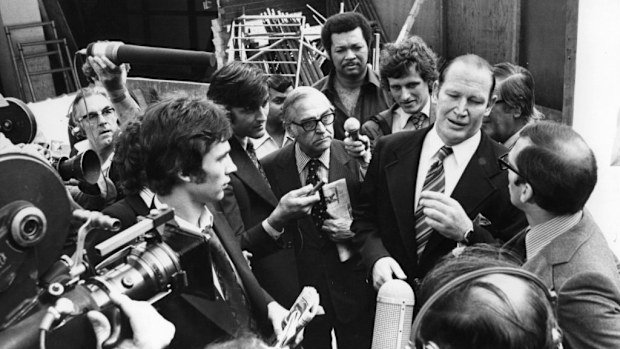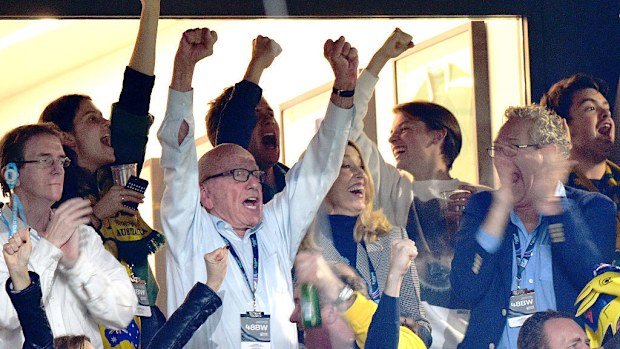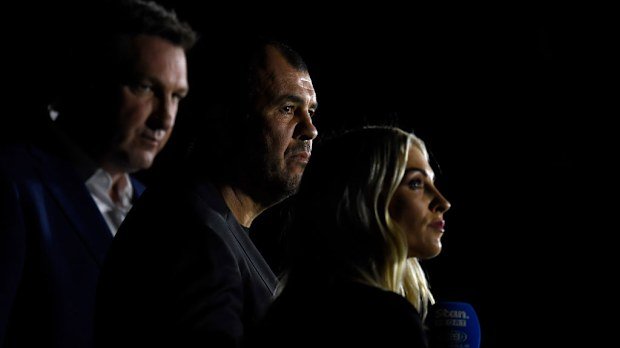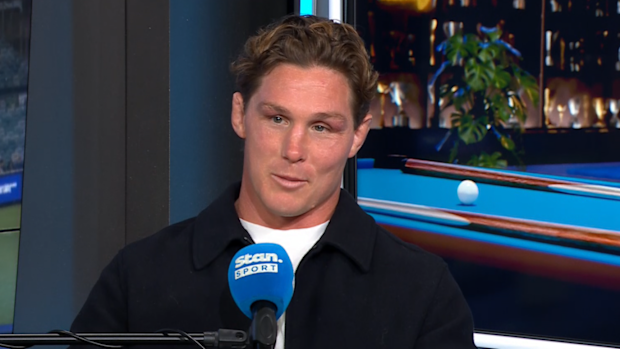Michael Cheika is no stranger to this scenario.
The Australian No.8-turned-coach has previously been embroiled in a similar situation, having agreed to participate as a secondary figure in Kerry Packer’s bid to establish a breakaway rugby league back in the mid-1990s.
Packer’s World Rugby Corporation allegedly secured commitments from hundreds of athletes, including Cheika, before the South African Rugby Union intervened, warning the 1995 World Cup-winning Springboks that they would be barred from representing their country if they accepted financial rewards from the rebel competition.

Kerry Packer, renowned Australian media magnate and founder of World Series Cricket. Getty
Ultimately, the wary Springboks withdrew, followed in quick succession by top players from the All Blacks and Wallabies, as Rupert Murdoch, Packer’s media rival, intervened.
In 1995, Murdoch’s News Corporation struck an $850 million deal with SANZAAR, an alliance formed between the rugby unions of South Africa, New Zealand, and Australia.
“This was the catalyst for the creation of Super Rugby and Fox Sports,” former Wallabies lock Justin Harrison, who also signed with WRC, explained to Stan Sport’s Inside Line.

Rupert Murdoch celebrates Australia’s participation in the 2015 Rugby World Cup final. Getty
“We had contracts signed because at that time they were the only options available. A total of 180 Australian players had signed contracts.
“I remember meeting George Gregan at a café in Canberra to sign mine.
“Then the Springboks managed to negotiate and signed with Fox and News Limited as defending world champions, leading to a mass migration of players to the other side.”
The dawn of professional rugby had begun, and the sport now finds itself at another critical juncture.
Several UK newspapers have reported on a consortium led by 2003 Rugby World Cup champion Mike Tindall, which aims to attract the world’s elite 300 male and female players.
The proposed franchise competition, dubbed R360, is anticipated to take place primarily during the northern hemisphere summer across several major cities globally, including London, Paris, Los Angeles, Tokyo, Buenos Aires, and Cape Town.
NEW PODCAST! Michael Hooper discusses why he isn’t participating against the Lions and explores the potential of a rebel rugby league.
Cheika commented, “The sport owes its current state to those who dared to challenge the status quo.”
“Perhaps disruption could elevate the game to new heights. It might not be the newcomers but instead the current World Rugby leaders who respond, and increased market interest could signify more investment opportunities for the game.
“Disruption shouldn’t be feared; rather, it should be faced head-on, just like any other challenge in business or sport…”

Justin Harrison, Michael Cheika, and Allana Ferguson on Stan Sport. Getty
“There was no persuading me; I was fully committed (as a player). We faced a choice between amateurism or professionalism, and it made a significant difference. It turned the game professional, so I’m not concerned about disruptive changes.”
However, the financial structure of this proposed league remains unclear, leading former Wallabies skipper Michael Hooper to question whether there’s genuine interest in such a venture.
“Why would I watch it as a fan?” he pondered on Inside Line.

Michael Hooper on Stan Sport. Stan
“That’s a vital question. People watch Australian rugby because they are Australian, and they want to see the Wallabies succeed. That’s why the World Cup garners such massive attention—it’s a matter of national pride. Personally, I support Manly;
My father played for them. Does a rebel league foster that community spirit, which is at the heart of rugby?
“I know there was talk about targeting players like Sevu Reece, Richie Mo’unga, and Angus Bell… but would I tune in at 3 a.m. in Brazil? I’m not so sure.”
Tindall noted in the R360 prospectus that the initiative is a response to the club game struggling to generate the same level of interest and investment as international rugby.
“Clubs worldwide are feeling the pressure and are propped up by national teams,” he asserted.
“The lack of innovation and adaptability in rugby may threaten its appeal to a newer audience and the younger demographic.”
Compiled by SportArena.com.au.
Fanpage: SportArena.com.au.
LiveScore – Live Sports Results & Odds.




